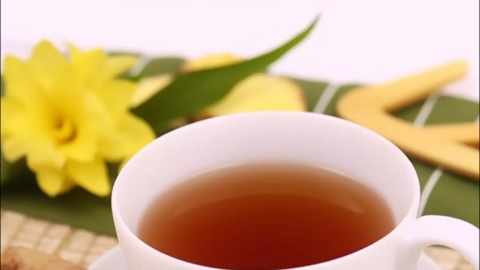What kind of tea is suitable for women to drink in winter?
Generally, women have many types of tea suitable for consumption during winter, such as chrysanthemum tea, brown sugar ginger tea, glutinous black rice tea, red date and wolfberry tea, longan tea, etc. The details are as follows:

1. Chrysanthemum Tea
Chrysanthemum tea is made by steeping dried or fresh chrysanthemums and has the effects of clearing heat and detoxifying the body, cooling the blood, and promoting blood circulation. Winter weather tends to be dry, making people more prone to heatiness. Drinking chrysanthemum tea in moderation helps reduce internal heat and alleviate symptoms such as dry mouth and throat pain.
2. Brown Sugar Ginger Tea
Brown sugar ginger tea is made by boiling brown sugar and ginger. Brown sugar helps replenish energy and improve symptoms of physical weakness and fatigue, while ginger helps dispel cold and warm the body. Drinking this tea during winter helps prevent and treat upper respiratory tract infections.
3. Glutinous Black Rice Tea
Glutinous black rice tea is made by boiling glutinous rice and black tea. Glutinous rice is nutritious and rich in dietary fiber and carbohydrates, while black tea assists in regulating the spleen and stomach, improving symptoms such as poor appetite and indigestion. Drinking this tea in winter helps women regulate their bodies and alleviate symptoms like abdominal pain and diarrhea caused by cold-induced reactions.
4. Red Date and Wolfberry Tea
Red date and wolfberry tea is made by boiling red dates and wolfberries. Red dates have the effect of promoting blood circulation and removing blood stasis, while wolfberries nourish the liver and kidneys. Drinking this combination helps women replenish blood and vital energy, improving symptoms such as pale complexion and fatigue during winter.
5. Longan Tea
Longan helps nourish the blood and vital energy. Drinking longan tea during winter helps regulate sleep quality, improve insomnia and excessive dreaming, and protect the eyes and liver by reducing damage caused by external factors.
It should be noted that women should choose suitable teas according to their individual conditions to ensure health and nutrition. After consumption, regular observation is necessary, and if discomfort occurs, use should be discontinued promptly.









